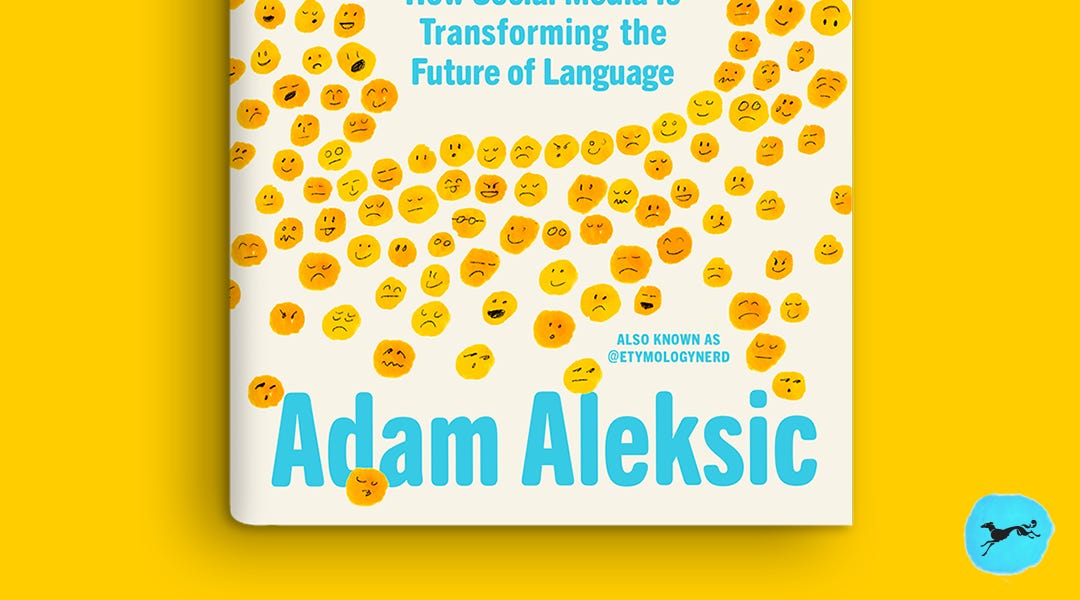NPR's Adrian Ma talks to Adam Aleksic about his new book, "Algospeak," which looks at how algorithms and online creators are affecting the way people speak offline.
ADRIAN MA, HOST:
One of the beautiful and sometimes bewildering things about the English language is that it's always changing. I mean, take the words rizz or skibidi or even the expression, to cancel. It was fairly recently that we started using cancel to mean withdrawing support or denouncing. And, of course, rizz meaning charisma, or skibidi meaning, well, nothing. Those words didn't even exist just a few years ago. Now they're used and understood by millions of people. Now, don't worry if you do not count yourselves among them, because our next guest argues that the way we speak on- and offline is evolving at an unprecedented pace. He's Adam Aleksic, who's a creator that posts online under the name Etymology Nerd. He's got a new book called "Algospeak," and he joins us from our bureau in New York. Adam, thanks for talking with WEEKEND EDITION.
ADAM ALEKSIC: Hi, Adrian. Excited to be here.
MA: So you say there are these inflection points in history that have had a huge effect on the way people communicate. There's the invention of writing and the printing press and the internet. Now you say we are living through another inflection point shaped by algorithms. Can you give us your argument in a nutshell?
ALEKSIC: Of course. We have all these algorithms shaping in-groups and echo chambers and where words come from, how words spread, how trends get popularized, how some words are censored, and we have to find ways around that. So one example I start the book with is the word unalive. The word kill is suppressed on TikTok, so many creators have turned to say unalive instead. And now we have kids in middle schools writing essays about Hamlet unaliving himself, and that's an example of social media algorithmic speak bleeding into the mainstream. And that's traditional algospeak. But in many ways, algorithms are now shaping every aspect of how we communicate. The underlying process is not new. We've always had fads, for example. But algorithms compound how trends get spread online in a way that makes slang words appear faster than in the past.
MA: Language has the potential to go viral in a way that it didn't before.
ALEKSIC: Look at the word rizz, which started out in 2022 in the back corners of the internet. Kai Cenat popularized it on Twitch. By the end of 2023, it became the Oxford English Dictionary Word of the Year. I think it might have taken a word like rizz maybe a decade to become popular in the past. But because of how algorithms amplify trends, they incentivize creators to use trending metadata because that's a way that creators tap into ongoing fads and stay relevant. Then these words get pushed further. And the word rizz entered what I call the engagement treadmill, where some words get pushed more because they are trending.
MA: But it's not all about trends spreading words. Sometimes these new words serve a genuinely useful function. Like, you talk about the example of the phrase, canceling somebody, which didn't exist that long ago and now everyone knows it. It kind of fills this semantic gap in our language. Can you talk about some other examples of these gap-filling words and how they spread through social media?
ALEKSIC: Right. An important thing to remember is that words are memes and they get tied to meme lifespans. If there's no natural reason to keep the meme around, it dies. One usual reason memes do die is because they get used by this out-group that no longer feels like it's funny or cool. If your grandmother starts saying skibidi, skibidi's going to die out. I'm a strong believer that in about a year, skibidi's going to be out.
MA: OK. You heard it here first.



 Education
Education 22 Jul, 2025
22 Jul, 2025 Jose Campbell
Jose Campbell